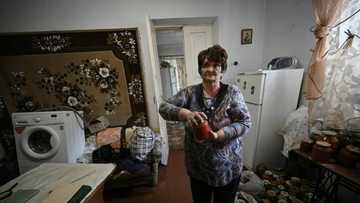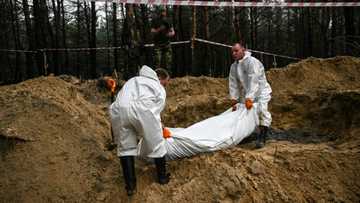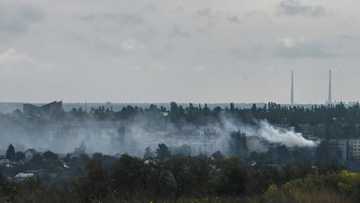Russian torture claims haunt recaptured east Ukraine
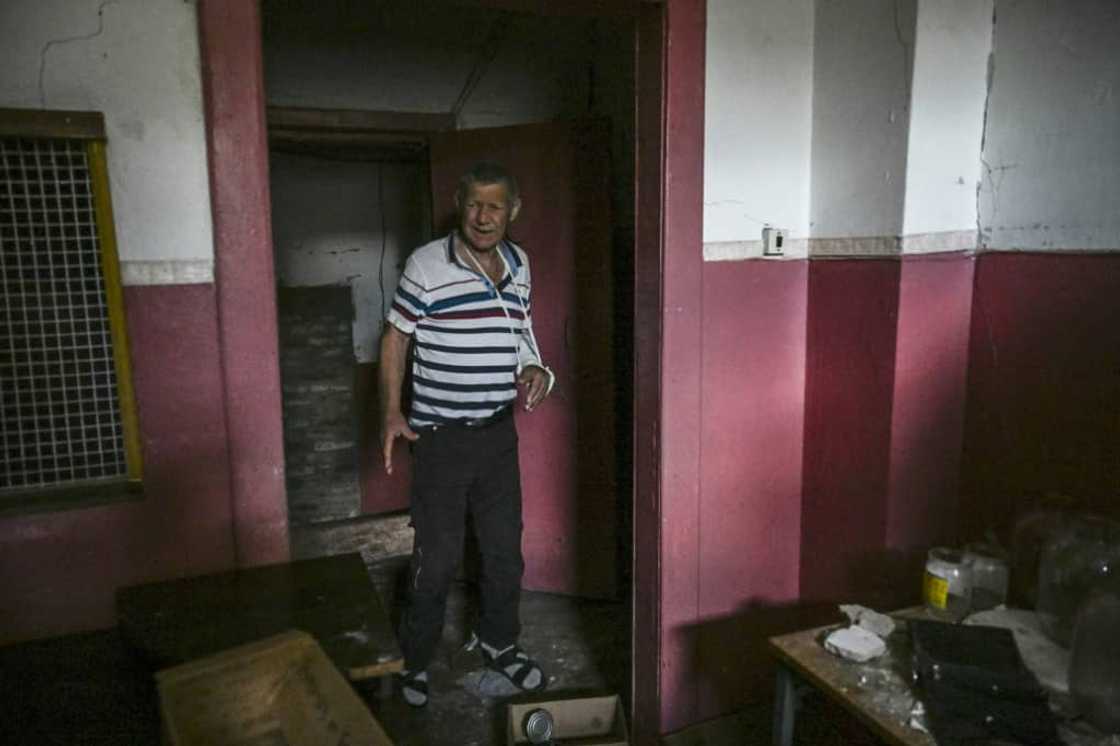
Source: AFP
PAY ATTENTION: Click “See First” under the “Following” tab to see Briefly News on your News Feed!
"On the second day, they broke my arm," said Mykhailo Chindey, recalling his interrogation by Russian soldiers.
"One person was holding my hand and another one was beating my arm with a metal stick. They were beating me up two hours almost every day.
"I lost consciousness at some point. I lost a lot of blood. They hit my heels, back, legs and kidneys," he said.
At Izyum's hospital, Chindey has gingerly started walking again.
His injured arm is encased in plaster, a painful reminder of Russia's occupation of the eastern Ukrainian city.
The Russians arrested Chindey after Kyiv's forces bombed a school near his home, killing and injuring "many" occupying troops, he said.
PAY ATTENTION: Follow Briefly News on Twitter and never miss the hottest topics! Find us at @brieflyza!
He was suspected of having supplied the coordinates for the strikes to Ukrainian soldiers. His interrogators insisted he reveal any communications he had had with them.
"They put a bag on my head and brought me somewhere," the 67-year-old told AFP. "When I could see again I recognised the place: it was the police station in Izyum.
Torture chambers
Chindey's experience is just one of several stories of torture and arbitrary detention by Russian troops to have emerged from eastern Ukrainian recently.
Kyiv's forces captured a string of towns and cities in their counter-offensive this month, including Izyum, Balakliya and Kupiansk.
Ukraine's national police chief on Friday said more than 10 "torture chambers" had been found in the formerly Russian-controlled parts of the northeastern Kharkiv region.
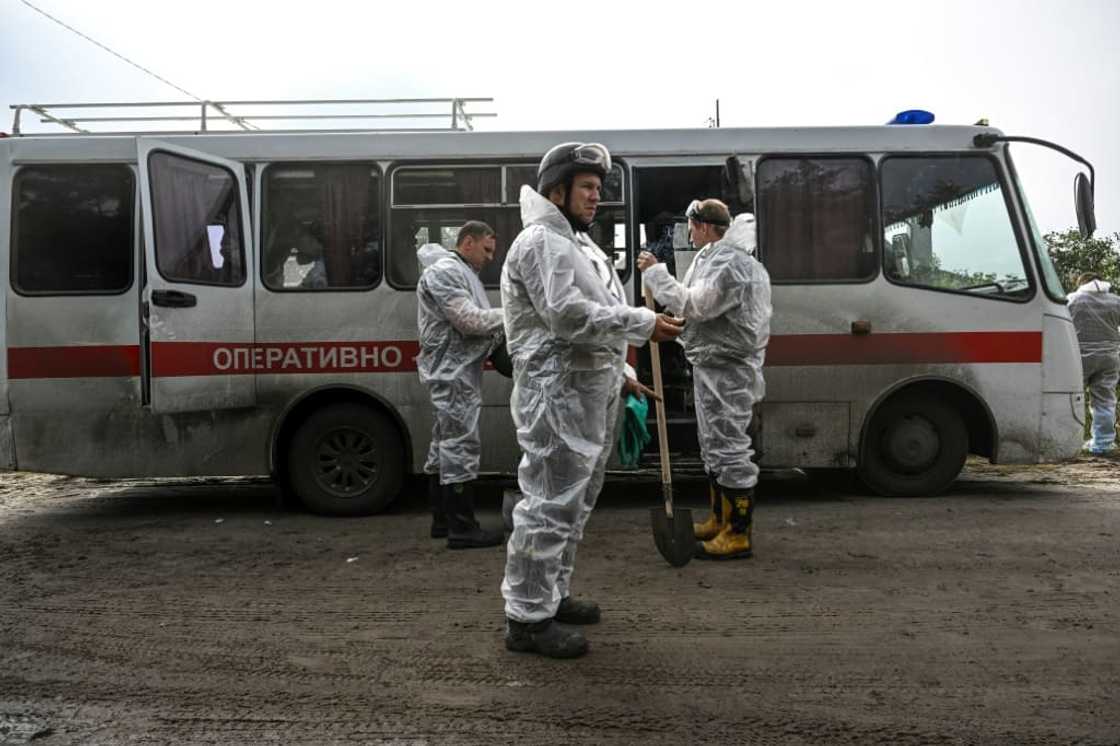
Source: AFP
Ukrainian officials also said they found mass graves after Russian troops retreated from Izyum.
President Volodymyr Zelensky denounced the Kremlin's forces as "murderers" and "torturers".
Chindey showed AFP the tiny, humid cell where he said he was held for 12 days with up to seven other prisoners before the arrival of Ukrainian troops.
Stuck to the cell wall in the bomb-damaged police station's basement was a rag from his jacket that he used as a bandage.
Other detainees were kept in a dozen cells spread out over two levels in the basement, he said.
Chindey remembered seeing around 15 people -- and none of them had left there without being beaten.
"I could hear the other people interrogated, screaming 24/7," he said.
One man had died there, he added.
On the ground floor, a young officer has arrived from Ukraine's second city, Kharkiv, to investigate potential war crimes.
The office where he starts to write his report reflects chaos. Folders are strewn on the floor, alongside broken chairs and upturned items of furniture.
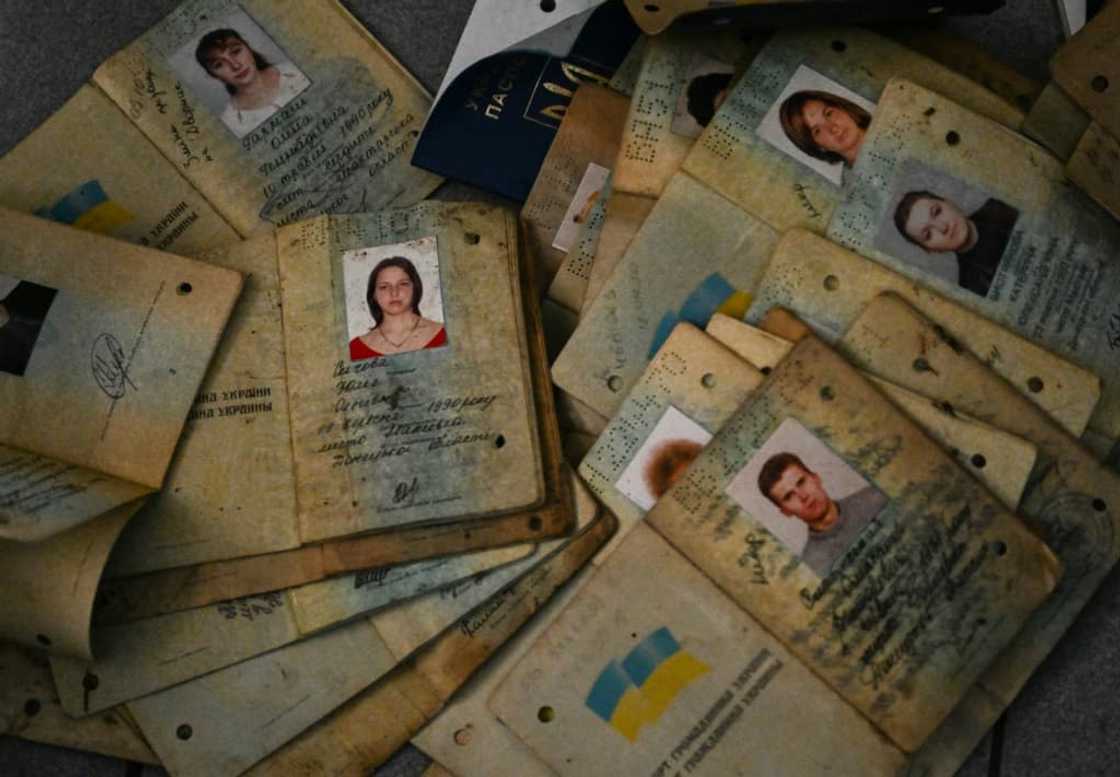
Source: AFP
In one room, more than 100 Ukrainian passports lie on the ground, on an old sofa and a desk.
"We have much work to do," admitted the man, who refused to give his name.
The investigators would have to check everything, even the digital fingerprints, to compare them with those found in the Kyiv suburb of Bucha and other places where potential war crimes were committed.
Alleged cases of torture would be reviewed by the investigators who arrived in Izyum on Sunday, and they were due to stay there for four to five days, he added.
'Bodies floating in the river'
A short distance from Izyum lies Kupiansk, where a panicked Marina Mikhailychenko is trying to flee the non-stop bombing around the battered city still being fought over by both sides.
The 32-year-old said she was arrested and held for one week during the Russian occupation of Kupiansk because her brother serves in the Ukrainian army. Eight other people were crammed into her cell.
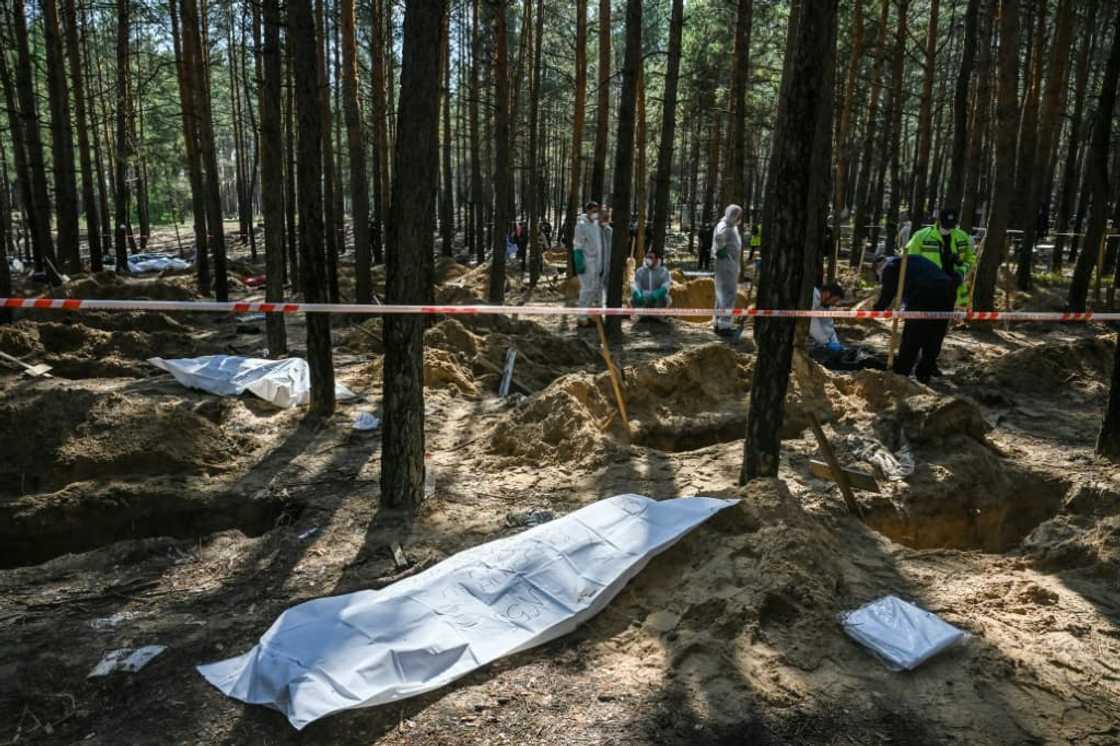
Source: AFP
A volunteer in Kupiansk nicknamed "Bronik" told AFP the police detained and tortured anyone who had fought in the Ukrainian army since 2014 or who harboured pro-Kyiv sentiments.
"I don't know if people died of torture," he said.
"But there were people that were physically injured. Local residents saw bodies floating in the river."
In Balakliya, Viktor Priliepov said the Russians held him in a police station cell for three days, forcing a bag over his head.
Priliepov, 68, was questioned about his son in the Ukrainian army but thinks he avoided rough treatment due to his "health problems".
But others, he said, were not so fortunate.
PAY ATTENTION: Сheck out news that is picked exactly for YOU ➡️ find the “Recommended for you” block on the home page and enjoy!
Source: AFP

